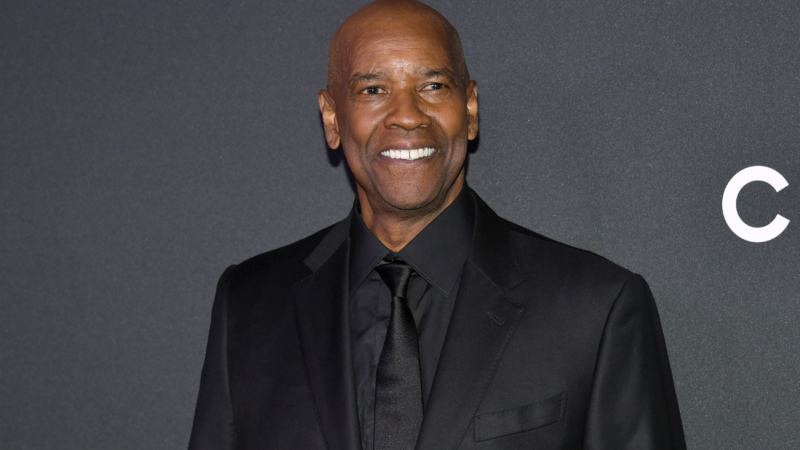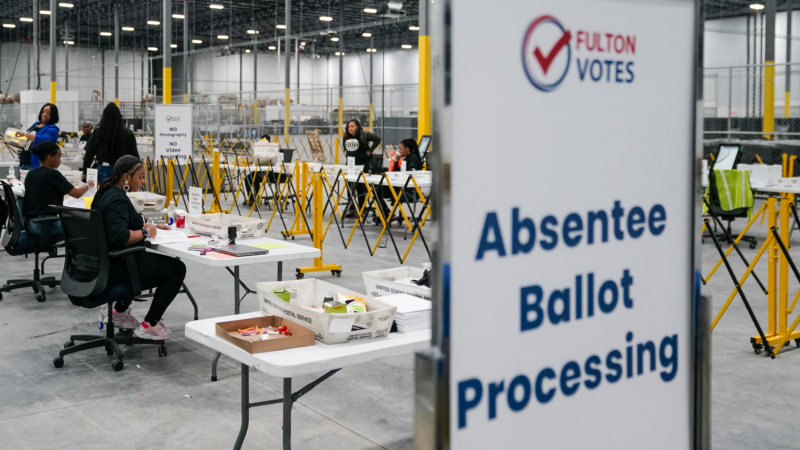Two Black women will serve together in the Senate for the first time

This story originally appeared as part of NPR’s live coverage of the 2024 election. For more election coverage from the NPR Network head to our live updates page.
Two states elected Black women to the U.S. Senate on Tuesday night, making history for themselves and the country.
Maryland elected Prince George’s County Executive Angela Alsobrooks, while Delaware elected Rep. Lisa Blunt Rochester. Both are Democrats.
Their victories double the number of Black women ever elected to the U.S. Senate, from two to four.
Loading…
Carol Moseley Braun was the first, in 1992, while Vice President Kamala Harris became the second in 2016.
California Sen. Laphonza Butler is the third Black woman to serve in the chamber, but she was not elected — she was appointed in October 2023 to finish out the late Sen. Dianne Feinstein’s term, which ends in January. She is not seeking reelection.
In other words: Only three Black women have served in the Senate, and never at the same time.
That’s set to change when Alsobrooks, 53, and Blunt Rochester, 62, are sworn in next year.
The two have worked in politics in neighboring states for years — Blunt Rochester is in her fourth term in the U.S. House, while Alsobrooks served as state’s attorney in Prince George’s County before her two terms as executive — but didn’t cross paths until recently.
Politico reports the two became close during their Senate races.
Blunt Rochester told the outlet that she reached out to Alsobrooks after she won her primary to say “I’m looking forward to hopefully being your sister senator-to-be.”
The two have since referred to each other as their “senator sister,” and spoken about their shared experiences and motivations when it comes to tackling issues from prescription drug affordability to maternal mortality, which disproportionately impacts Black patients.
“The history-making part is good, but the impact is what we’re all going for, to make a difference in people’s lives,” Blunt Rochester told Elle in September. “The ability to go to the Senate and be one of 100 — but also as two of only five [Black women senators] in the history of this country — would be incredible.”
Israeli strikes kill dozens in the Gaza Strip and Lebanon, medics say
Israeli airstrikes killed at least 46 people in the Gaza Strip in the past day, medics said. In Lebanon, warplanes struck Beirut's southern suburbs and killed 33 people in the country on Tuesday.
US prohibits airlines from flying to Haiti after planes were shot by gangs
The shootings were part of a wave of violence that erupted as the country plagued by gang violence swore in its new prime minister after a politically tumultuous process.
Trump taps Musk to lead a ‘Department of Government Efficiency’ with Ramaswamy
President-elect Trump announced a "Department of Government Efficiency," or DOGE, that will be led by Tesla CEO Elon Musk and entrepreneur Vivek Ramaswamy, focused on shrinking the federal government.
Trump to nominate Fox News host Pete Hegseth to be defense secretary
President-elect Donald Trump has announced he will nominate Fox News host Pete Hegseth to serve as secretary of defense. Hegseth is a combat veteran who has long advocated for veterans.
Georgia counties certify the election, as fraud claims dissipate after Trump win
Every county in Georgia has certified its general election results. There had been concerns about election certification, but with Donald Trump's victory, those worries have largely gone away.





